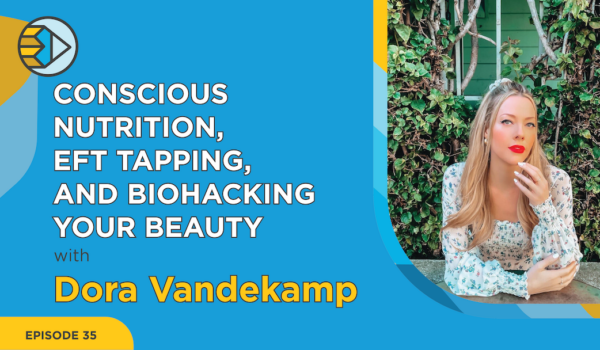
EP 53: 11 Study Hacks You Should Know
We are getting close to crunch time in the academic world. With exams and final papers looming we wanted to bring you some simple and effective study hacks that you can put into place right away. Join Cath Anne on Episode 53 for 11 Study Hacks You Should Know!
Looking for study tips, help with essay writing, or advice on how to be a better student? Welcome to The Homework Help Show, a weekly show where we teach, assist, and offer valuable insights for student life. From study hacks to writing tips, discussions about student mental health to step-by-step guides on academic writing and how to write a resume, we’ve got you covered. Want your questions answered? Write them below or join the conversation on social media using the hashtag #askHHG
TRANSCRIPT:
Cath Anne: [00:00:00] Hi guys and welcome back to our channel. My name is Cath Anne and this is the Homework Help Show hosted by Homework Help Global here on the show. We provide you with valuable content for your academic and student life. Let’s jump in.
Cath Anne: [00:00:25] Let’s face it guys. We are getting close to crunch time in the academic world and with all of the final papers and exams looming we wanted to provide you with some study Hacks that will be simple and effective and that you can implement into your study routine right away.
Cath Anne: [00:00:49] Our first study hack is create your workspace. We have discussed this a lot on the show. Now when you’re creating your workspace and you want to make sure that you are somewhere that is comfortable however you might want to avoid sitting in that big comfy chair or going to your bed just to study because you are way more likely to fall asleep or want to have a nap instead of writing that final test. Position yourself as far away from your bedroom as possible you’re also going to want to think about a place that gives you a good vibe something that will motivate you to do work. You might want to change locations perhaps you could go to a cafe a common workspace or even the university’s common area. Think about a space where other people will also be doing work. When you look around and see other people working this is likely to motivate you because you will want to do work as well.
Cath Anne: [00:01:48] Listen to music while you study. Now many of you might already do this however you want to listen to a certain type of music listening to classical or ambient music is best to help you to retain information. There is research to back up a study by Missy Baker at the Stanford School of Medicine indicates that listening to music engages the brain over time by listening to music. The brain is more likely to engage in anticipatory actions. It sharpens the brain and makes the brain more able to concentrate and anticipate what is coming up. This makes it a great option for study time.
Cath Anne: [00:02:29] Have some caffeine. Studies show that caffeine contributes to concentration and focus. Try having a cup of coffee or tea while you are studying or before you study. If you find you are sensitive to caffeine and you can’t drink as much coffee consider a drink like Macia. Macia still has a good amount of caffeine in it. However it also has an ingredient called altheinine. Altheinene can help with anxiety levels making it a great combination for energy and focus while also helping you to keep calm while you’re studying.
Cath Anne: [00:03:09] Take study breaks we have talked a lot on this show about the Pomodoro Technique. This technique advocates studying or reading in 25 minute chunks then taking a five minute break. Research suggests that studying in these small increments helps to increase focus and motivation, two keys to effective studying.
Cath Anne: [00:03:37] Use mnemonics. Mnemonics are techniques that were developed by ancient Greek scholars and orders to help them to remember long passages and speeches. We can use mnemonics today think about. Different types of mnemonics you may have heard for example a rhyme. 30 days hath September April June and November. Most of us are familiar with this mnemonic. Mnemonic techniques work best for multiple choice tests where there is no writing process required or you don’t have to have a strong understanding of phonetics. Or other in-depth skills. They can help you to remember information and regurgitate it on your test. Mnemonics help us to encode information into our long term memory and this can happen almost effortless with the use of mnemonics. Another very famous mnemonic is in fourteen hundred and ninety two Columbus sailed the ocean blue. Finally we have another funny mnemonic device my very excellent mother just served us nachos this helps us to remember the pattern of the planets Mercury Venus. Earth. Mars Jupiter Saturn Uranus Neptune.
Cath Anne: [00:05:08] Read out loud. Have you ever read a passage of a book only to go back and realize you don’t remember a word of what you read. This is because you were reading passively. Try reading out loud because this is an active process and it will help you to retain information over time as you are fully engaging with the material.
Cath Anne: [00:05:33] Record your lessons. If your professor permits bring your phone to class and use your recorder to record your lesson this way you can listen to your lessons on your own time and review the information that occurred in class. The best time to review your lessons is at least 24 hours after the original class. This is a time that you will best be able to retain information.
Cath Anne: [00:06:01] Smell essential oils. Now this is definitely going to sound like a funny one. However the sense of smell is a strong trigger for memory. So if you are diffusing it oil like lavender or peppermint while you’re studying the same smell can help bring back memories of what you studied before your test. Mix an essential oil with the carrier oil and just put some on your wrist. Smell it throughout the test and that will help you bring back the memories of information that you studied while defusing that oil.
Cath Anne: [00:06:39] Use the Corson Method. This is another thing we have talked about a lot on the show. When you are working through a problem and you encounter new information that is giving you some difficulty. Spend some time working through it. If you find you’re stuck on a problem spend at least 15 minutes working through it before going to your professor. In this way you can narrow down where specifically you are getting stuck which is going to help you to retain more information and it is also going to save you time and the professor time.
Cath Anne: [00:07:16] One of the best things to do when you are studying is to teach a friend or classmate. When you do this it forces you to become more familiar with the material. In turn you will learn more and become more comfortable with the material which will prepare you for exam time.
Cath Anne: [00:07:36] One of the best ways to prepare for an exam is to do an online quiz or an online exam. It is easy to find these exams on Google simply type into the Google search “site:edu [blank] exam” whatever kind of exam you’re looking for. So for example type in “site:edu sociology exam” and you will come up with a list of various sociology exams that you can use to prepare for your real exam.
[00:08:09] Okay so that’s it for me this week guys. I hope these 11 study hacks have been super helpful. Let us know in the comments below if you found any of these hacks helpful and let us know if you do have any of your own hacks that you like to implement into your steady routine. If you’re looking to connect with us on any of our social media platforms all of our information is linked and listed in the description box below if you like this video. Make sure to give it a thumbs up and subscribe to our channel so you don’t miss out on any of our content. Thanks for joining me this week guys. Good luck on your exams and your final papers. All the best and take care.
Share:

